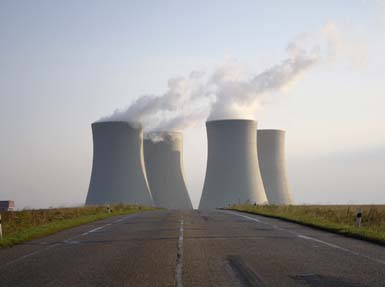“No nukes now. No nukes probably forever,” says environmental activist Kevin Moore.
Moore, in the late 1980s, went to jail as a protester seeking to block the licensing of nuclear power plants.
He’s remained active since. And, like many no-nuke demonstrators who committed to the cause in the late 1970s and 1980s, he’s baffled by the current campaign to build new plants.
“Did I miss something?” the 72-year-old activist asked. “Did they figure out what to do with the waste?”
The answer is no.
Yet, the Wisconsin Assembly has passed AB 384, which would remove a barrier to building new nuclear plants enacted in 1983, four years after a meltdown at the Three Mile Island plant in Pennsylvania and three years before the explosion and fire at the Chernobyl Nuclear Power Plant in Ukraine. Current state law prohibits new plants until the construction of a federal storage facility for nuclear waste.
A Senate committee held a hearing on its version of the pro-nuclear bill, SB288, on Jan. 5, but had not voted on the measure when WiG went to press.
Republican state Rep. Kevin Petersen, in a memo introducing the bill, described nuclear power as affordable, clean, safe and necessary.
Proponents also argue Wisconsin needs nuclear options to comply with the Obama administration’s clean power plan requiring energy producers to reduce carbon emissions.
But opponents say that’s a false argument.
“Nuclear energy is a distraction from realistic, cost-effective methods to reduce carbon emissions in Wisconsin: energy efficiency and renewable energy,” the Clean Wisconsin environmental group said in a statement on AB 384. “Nuclear is exorbitantly expensive and new plants take decades to get up and running.”
The Wisconsin League of Conservation Voters refers to AB 384 as the “Nuking Wisconsin’s Energy Priorities Law” and has urged members to lobby their legislators.
The Sierra Club-John Muir Chapter also opposes the measure.
Meanwhile, the national Sierra Club has responded to a renewed nuclear energy push with a “nuclear free future” campaign.
“The Sierra Club remains unequivocally opposed to nuclear energy,” read a statement from the leading environmental group.
“Although nuclear plants have been in operation for less than 60 years, we now have seen three serious disasters,” the statement continued, referring to Three Mile Island, Chernobyl and the disaster in Fukushima, Japan, in 2011. “Nuclear is no solution to climate change and every dollar spent on nuclear is one less dollar spent on truly safe, affordable and renewable energy sources.”
The Sierra Club’s nuclear-free campaign emphasizes:
• The issue of what to do with the long-lived waste created by the fissioning of uranium remains unresolved.
• Uranium mining has contaminated large sections of the southwestern United States and many other areas in the world.
• Older nuclear plants sit in areas more densely populated than when they were built and almost all leak tritium and other radionuclides into groundwater.
• Newer nuclear plants remain expensive and need enormous amounts of water.
• Despite what energy industry leaders claim, nuclear power has a huge carbon footprint. Carbon energy powers uranium mining, milling, processing, conversion and enrichment, as well as the formulation of fuel rods and construction of plants.
A letter that Sierra’s John Muir chapter sent to Wisconsin lawmakers on behalf of a Carbon-Free, Nuclear-Free Coalition warned passage of the pro-nuclear bill could lead to the state becoming a depository for nuclear waste.
Elizabeth Ward of the Sierra Club-John Muir Chapter, Katie Nekola of Clean Wisconsin, Amy Schulz of Physicians for Social Responsibility, Peter Skopec of Wisconsin Public Interest Research Group and Al Gedicks of Wisconsin Resources Protection Council signed the letter, along with Chuck Baynton and Judy Miner.
The coalition said passage of the bill could “send a strong message to the Department of Energy that Wisconsin is open to hosting a nuclear waste repository. In the 1980s, the DOE ranked Wisconsin’s Wolf River Batholith as No. 2 for a second high-level nuclear waste repository. A 2008 DOE Study on the Need for a Second Repository listed Wisconsin as one of the top potential states based on our granite geology. After the cancellation of the potential Yucca Mountain repository, the DOE is desperate to find an alternative.”
Wisconsin’s energy mix
Wisconsin has one operational nuclear power plant, Point Beach, north of Two Rivers.
About 15.5 percent of Wisconsin’s electricity is nuclear-generated, 62.3 percent is coal, 13.2 percent natural gas, 3.4 percent hydroelectric and 5.5 percent renewable.
— Lisa Neff
